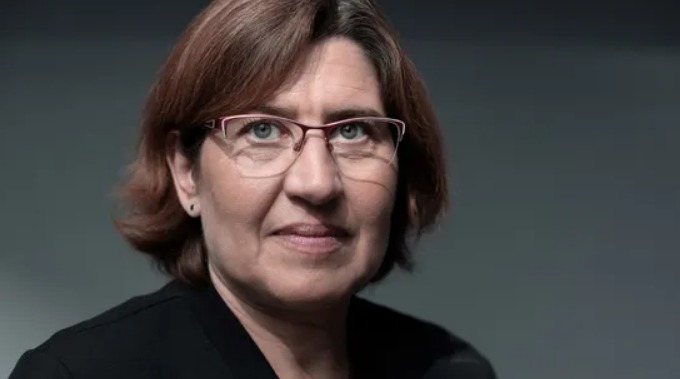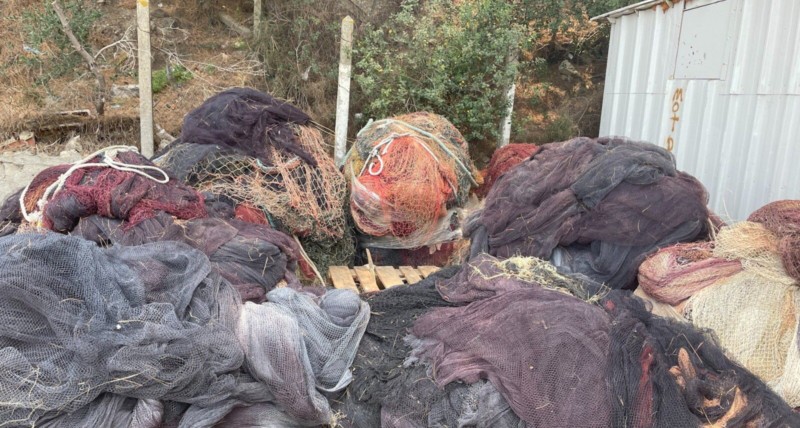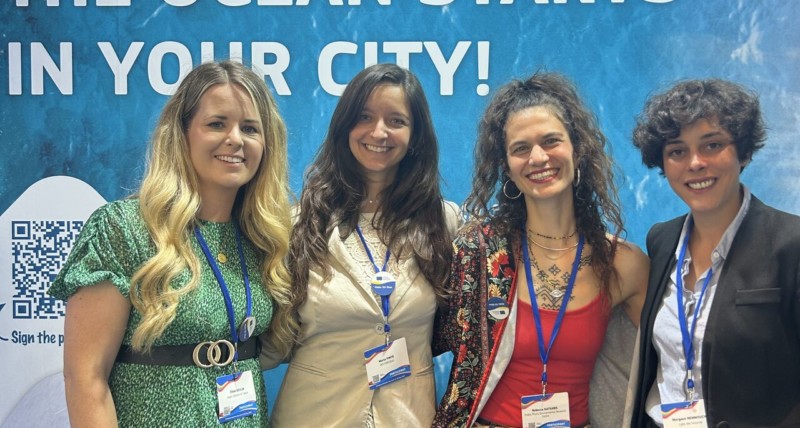Very invested in fundamental research in climate sciences and the sharing of knowledge, Valérie Masson-Delmotte looks back on her career within the IPCC and insists on the importance of bringing scientific knowledge to society as part of the fight for the climate…
Valérie Masson-Delmotte is CEA research director at the Climate and Environmental Sciences Laboratory / Pierre Simon Laplace Institute (Paris Saclay University).
His research focuses on climate variability, the evolution of past climates and their impact on future climate. In a small book entitled Facing climate change published by Editions du CNRS, she notably recounts her experience within the IPCC, as co-president of one of the working groups, from 2015 to 2023.
Throughout her professional career, she has become aware of the need to commit to the democratization and appropriation of scientific knowledge regarding climate change, and the levers of action to limit its impact. risks.
Since then, she has increased her public speaking engagements, worked to train decision-makers, and carried out daily actions.
She thus co-chaired the working group on the physical bases of the Intergovernmental Panel on Climate Change for 8 years, and is still a member of the High Council for the Climate (2018-2024).
She is also a member of the National Ethics Consultative Committee (since 2022) and has just been appointed to the joint INRAE–Cirad–Ifremer–IRD Ethics Committee.
She has just been appointed to the joint INRAE–Cirad–Ifremer–IRD Ethics Committee.
Continue your climate research
Last week, we learned that France had recorded a 5.8% drop in its greenhouse gas emissions in 2023 compared to 2022. A figure better than that expected, but perceived as cyclical by associations environmental problems due to a mild winter and the economic slowdown. Last week, again, in an appeal launched in the Obs, 70 personalities called for more environmental justice to fight against attacks on nature. Among the personalities signing the text, Valérie Masson-Delmotte, climatologist who, after eight years spent at the IPCC as co-president of group one, handed over last year, without ceasing her commitment and her research around the climate. . Valérie Masson-Delmotte has just published a book with CNRS éditions Facing climatic change in which she recounts her journey and the importance of climate sciences.
A remarkable drop in greenhouse gas emissions
Valérie Masson-Delmotte notes that this drop in gas emissions is remarkable, it is still being analyzed for the next report from the High Council for the Climate: “Compared to previous mild winters and the pandemic, it is the third strongest episode of decline, but there are still cyclical factors, such as mild winters, inflation, purchasing power and industrial production. But we should also be pleased that this is part of a reduction in greenhouse gas emissions in around twenty countries around the world. In France, greenhouse gas emissions have made it possible to avoid emitting several billion tonnes of greenhouse gases worldwide, and the trajectories of very strong future increases or very strong warming are considered to be less plausible. On the other hand, what is also notable is that we see results that may seem encouraging, but worrying trends such as, for example, the sharp increase in air transport which is 15%. »
There is still much to be done to reduce these greenhouse emissions
Despite these encouraging figures, Valérie Masson-Delmotte notes that there is still a lot of effort to be made: “There is still a lot to do on the one hand to build the decarbonization of our economic activities and also to be better protected in the face of a climate that will continue to change. We are faced with a net result of greenhouse gas emissions which could not meet the objectives that France has set for itself. There is what we emit, but there are also managed forests; we were counting in part on the growth of forests to counterbalance part of the emissions and this carbon sink from forests was halved over ten decades, which shows the importance of preserving ecosystems and their services and in particular the fact of be able to capture carbon. »
2025, an important year to reaffirm Europe’s commitment to the climate
Climate change also underlines the implementation of the European Green Deal which is important in all countries: “The year 2025 will be essential to reaffirm the commitment of European countries within the framework of the Paris Agreement. This will also be the time to prepare the courses that we will set collectively, particularly between 2030 and 2040. This is a period which will really be critical depending on what will be undertaken to move towards carbon neutrality or not. »
A risk of a decline in climate political ambition?
Corinne Le Quéré, president of the High Council for the Climate, noted that this 6% drop was encouraging, but that the feat would have to be repeated every year and in all sectors. While the Prime Minister affirms that he has no lessons to learn from anyone in terms of ecological and environmental efficiency, the High Council for the Climate is concerned about the risk of a decline in climate political ambition: “We needs to stay on course and on the schedule that was planned, particularly for energy climate programming, but also the trajectory for adaptation. We can clearly see that France is being hit hard by the consequences of a warming climate. As part of the ethics advisory committee, we are working on the prefiguration of an opinion on ethical, health and climate issues. This morning, the president of the Red Cross gave an update on emergency aid to the 65,000 people displaced by the floods in Pas-de-Calais. There is a lot to learn from the vulnerabilities we already see today. »
More frequent and intense rains in France in the future
In a warming climate, we expect to have extreme rains, more frequent and more intense with a tendency towards increased precipitation rather in the north of Europe: « Recent attribution studies on storms have suggested that the rain records were boosted in a warming climate and as we have built in a flood zone and in addition the sea is rising, this would be the time to evacuate the excess water on the continent, but it It’s a window that gets smaller every day. At the time of low tides, we observe that it is the beginning of configurations which will be more complicated to manage in the future and which concern the inhabitants of mainland France, overseas and all regions of the world. »
Justice, a major lever for the climate fight
Justice also has a major role to play in this climate fight, as Valérie Masson-Delmotte recalls: “For example, last week, the International Tribunal which deals with the law of the sea issued an opinion recalling the obligation States in relation to the consequences of greenhouse gas emissions on the state of the ocean and its acidification which weakens marine ecosystems. What is interesting is that we see that the issues of climate change percolate through other aspects of law, the environment, the sea, and what emerges is a reminder of the obligations of States. »




